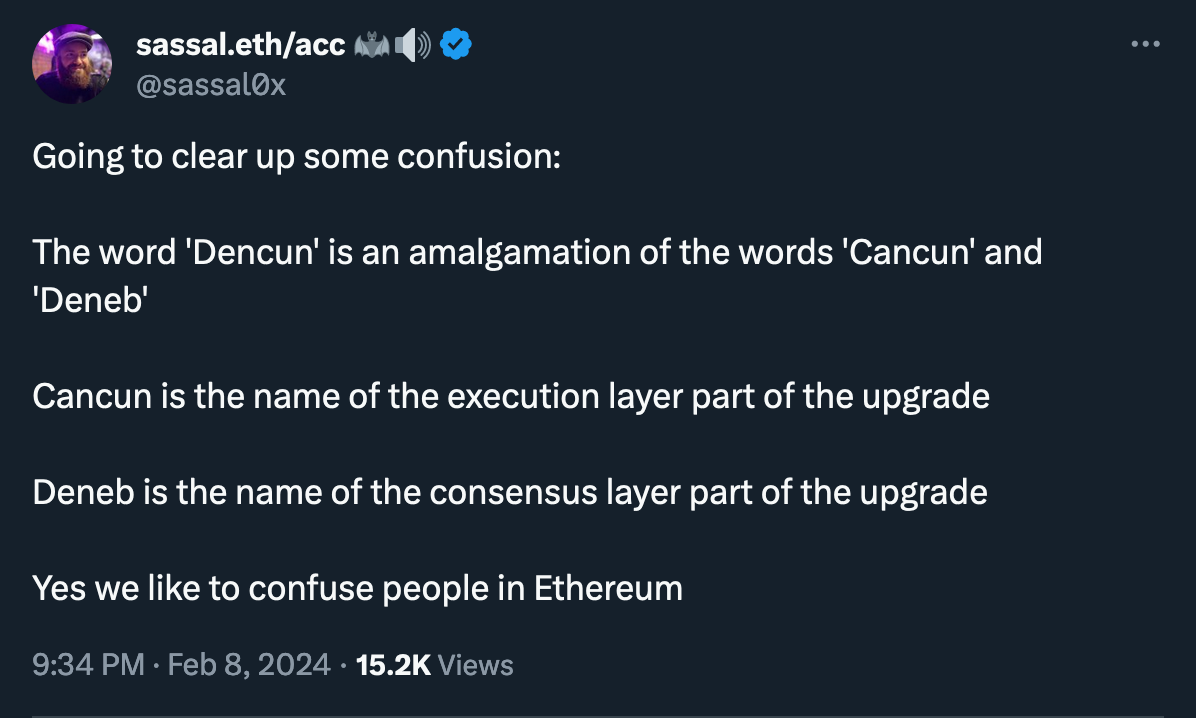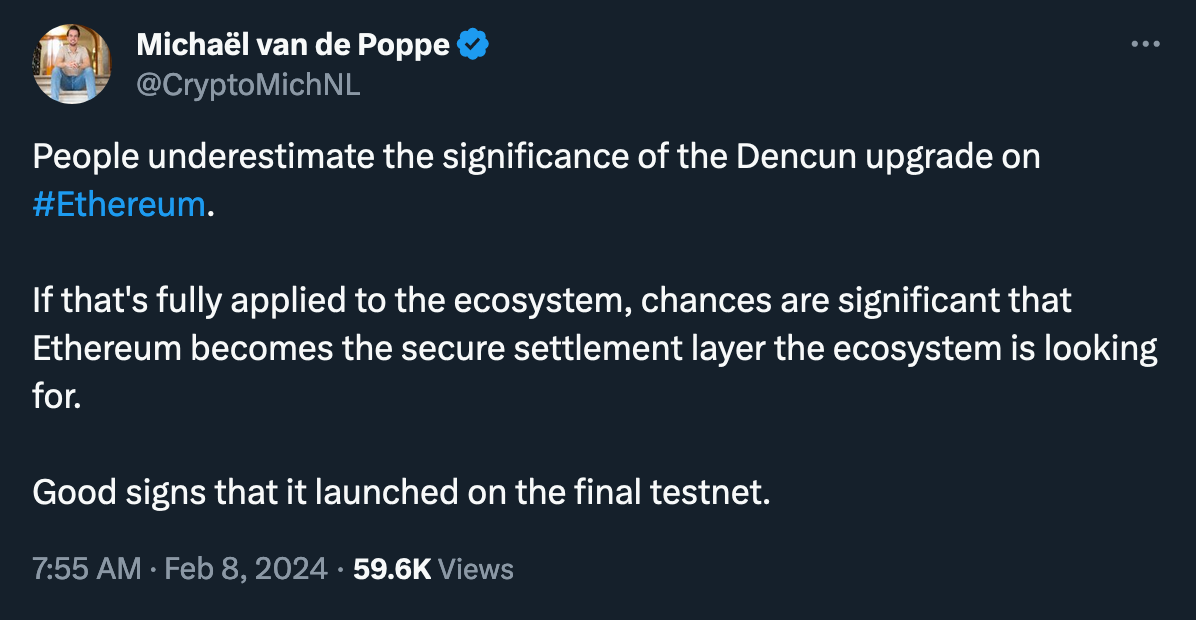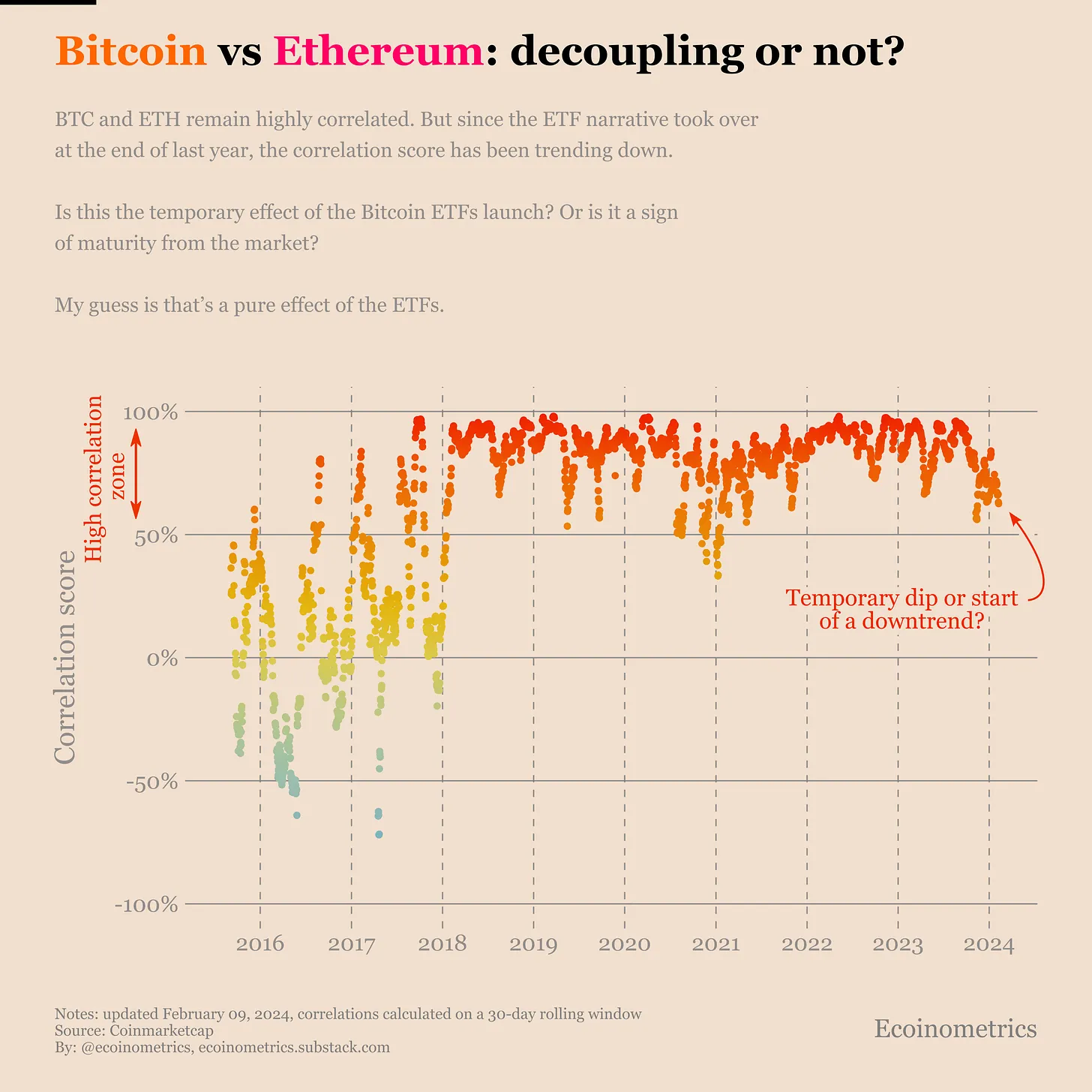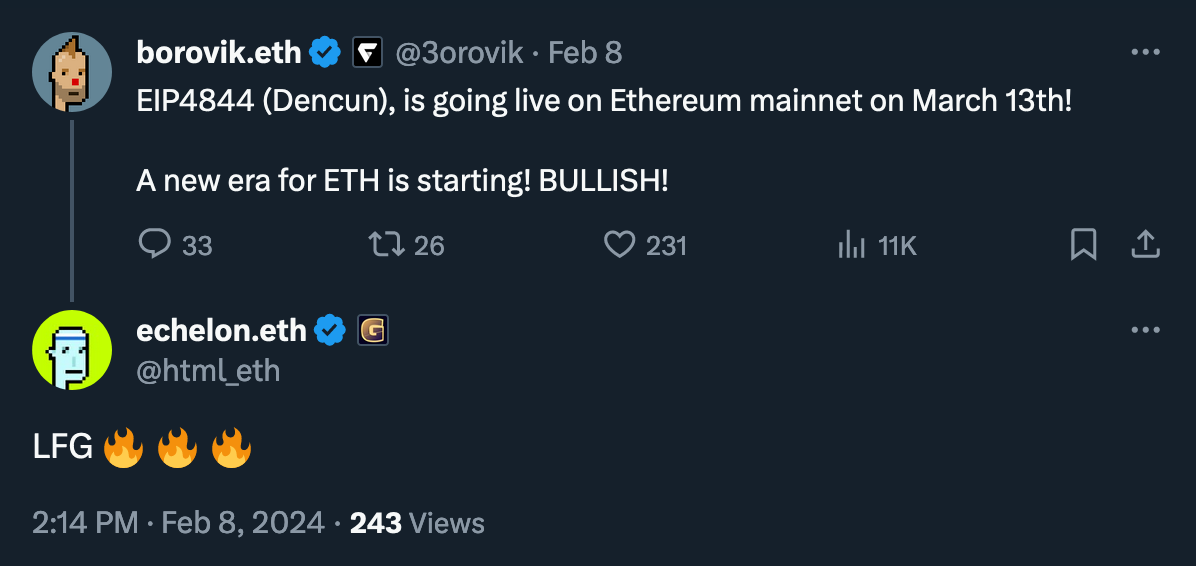Ethereum devs set a date for the mainnet Dencun hard fork on March 13. Dencun will, after years of waiting, introduce proto-danksharding through EIP-4844. This critical upgrade aims to enhance transaction speeds and reduce costs on Ethereum's Layer-2 networks, such as zkSync, Optimism, and Arbitrum, using a data storage method involving "blobs.”

Agreeing on scheduling the upgrade roughly five weeks from the announcement date, developers left two weeks for client teams to prepare their final client releases and three weeks for Ethereum node operators to update their software.

EIP-4844, the centerpiece of Dencun, does not aim to boost Ethereum’s security, efficiency, or scalability directly. Instead, it increases Ethereum block size to decrease transaction data posting costs for rollup operators, explicitly supporting users’ migration from Ethereum to Layer-2 rollups.
This shift is anticipated to intensify competition among top Layer-2 networks as they aim to carve out specialized niches.

Although rollups currently generate only about 15% of Ethereum's fee revenue, because of their emerging state and associated scalability, decentralization, and interoperability challenges, the Dencun upgrade is seen as a step towards maturing this technology. By lowering transaction costs for rollups, Dencun aims to pave the way for increased adoption, though immediate benefits to Ethereum's protocol revenue or adoption levels are not expected.

In parallel, Ethereum staking booms, with 25% of all ETH now locked up. That seems bullish, especially considering the re-staking potential. There's no reason Ethereum can't exceed 30%, 35%, and even higher staking levels, given other assets have achieved similar levels and continue to thrive.
And there’s something new that @ecoinometrics pointed out: Bitcoin and Ethereum are getting less correlated.

(Source: Ecoinometrics)
“Now it isn't a real decoupling. I mean we went from something like an 85% correlation score down to like 70%. … Why is it important? … If there is a real decoupling between those two we'll have way more trading options in the crypto market (but we aren't there yet).” (Ecoinometrics)
Excluding Dencun, Ethereum has undergone 14 hard-forks upgrades since the genesis of the network in July 2015, and Dencun is by no means intended to be the final one; developers are already tentatively planning the next upgrade, named Pectra, with the aim of activating it before the end of this year.

MetaTalks disclaims responsibility for any investment advice that may be contained in this article. All judgments expressed are solely the personal opinions of the author and the respondents. Any actions related to investing and trading in crypto markets involve the risk of losing funds. Based on the data provided, you make investment decisions in a balanced, responsible manner and at your own risk.

